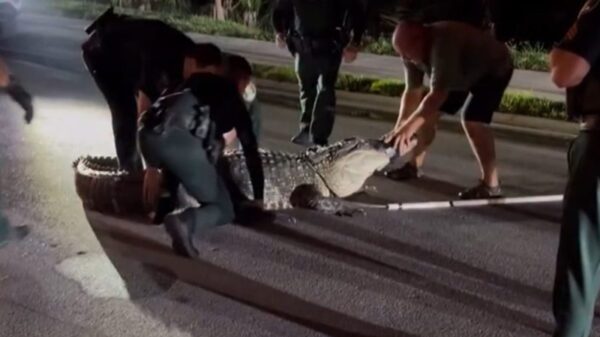Former Illinois State Senator Darren Bailey officially announced his candidacy for the governor’s race in 2026. He is seeking to reclaim the position he previously contested in 2022, where he ultimately lost to incumbent J.B. Pritzker. Bailey’s announcement comes after a narrow defeat in the Republican primary for Illinois’ 12th Congressional District, where he was edged out by incumbent Representative Mike Bost.
In a statement on social media, Bailey expressed his commitment to the state, saying, “I’m leaving the farm to fight for you — for your family, your freedom, and the future of Illinois. If you’re ready to restore common sense to Springfield, join our movement today.” He aims to rally support around his campaign, which he describes as a call to action for restoring conservative values in Illinois.
Bailey’s running mate will be Aaron Del Mar, the chairman of the Cook County Republican Party. Their partnership aims to strengthen the Republican ticket as they prepare for what is expected to be a closely contested election.
Background and Political History
Bailey first gained statewide attention during the COVID-19 pandemic when he filed a lawsuit challenging Governor Pritzker’s authority. Although the lawsuit was unsuccessful, it drew significant media coverage and criticism from Pritzker, who labeled it a “cheap political stunt.”
Political analysts suggest that Bailey’s platform will likely resonate with conservative voters who feel disconnected from the Democratic leadership in a state that has been predominantly blue in recent years. If elected, Bailey would become the first Republican governor since Bruce Rauner, who served from 2015 to 2019.
Opponents have been quick to criticize Bailey’s record. According to a spokesperson for the Democratic Governors Association, Izzi Levy, “Darren Bailey has returned for another attempt to drag Illinois backwards and bring Donald Trump’s chaotic, destructive, and deeply unpopular agenda to the state.” Levy asserted that Bailey’s history includes opposing measures aimed at reducing gun violence and aligning with far-right ideologies, suggesting he is “too extreme to be governor.”
Despite the challenges, Bailey remains resolute in his mission to unseat Pritzker. His campaign is framed around the promise of bringing “common sense” back to Illinois governance, emphasizing family values, individual freedoms, and the importance of state-level decision-making.
As the campaign unfolds, Bailey will need to navigate a complex political landscape characterized by a historically Democratic electorate. His strategy will likely focus on engaging rural voters and those dissatisfied with current policies, particularly in areas impacted by economic struggles and public safety concerns.
The Illinois gubernatorial race is anticipated to be a focal point in national politics as both parties prepare for the upcoming election cycle. With Bailey’s entry into the race, the dynamics are set for a potentially heated contest that could define the future political landscape of Illinois.





































































